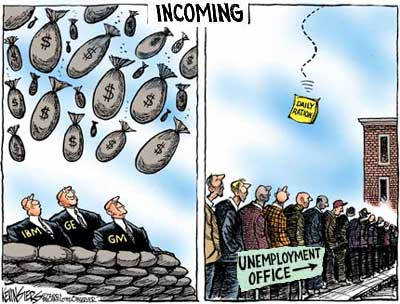Shock doctrine is upon us.
The economy in much of the developed world is being shut down by order of national governments. Borders are closing. People are quarantined and ordered to work or go to school from home. The explanations are bizarre, the facts hard to discern. We are told there is a coronavirus pandemic that started in Wuhan, China, spread to Iran and Italy, and then continued throughout the developed world. To date, the death toll is less than the annual flu.
When millions of people who are living paycheck to paycheck are laid off with no source of income, and hundreds of thousands of small businesses and cultural and sports events are bankrupted, there are plenty of reasons for panic other than invisible viruses spreading across the globe. The lines at gun stores have never been this long.
Efforts to keep people from gathering and communicating—other than through highly surveilled online means—are suspicious. The Fed has injected $5+ trillion into the repo market, announced a new round of bond and mortgage-backed securities buying, and offered lines of credit to primary dealers, prompting the Wall Street Journal to announce this week, "Well, so much for timidity at the Federal Reserve." The U.S. and other governments are authorizing billions in emergency spending, while lobbyists are pushing for the end of bank reserve requirements and an escalation of war in the Middle East.
What is happening and why? I discussed this extensively last week on Money & Markets. However, I wanted to compare notes with Dr. Joseph P. Farrell, who agreed to join me for an in-depth discussion and some "high-octane speculation" regarding the dramatic changes underway.
Cui Bono? Who Benefits?

No comments:
Post a Comment